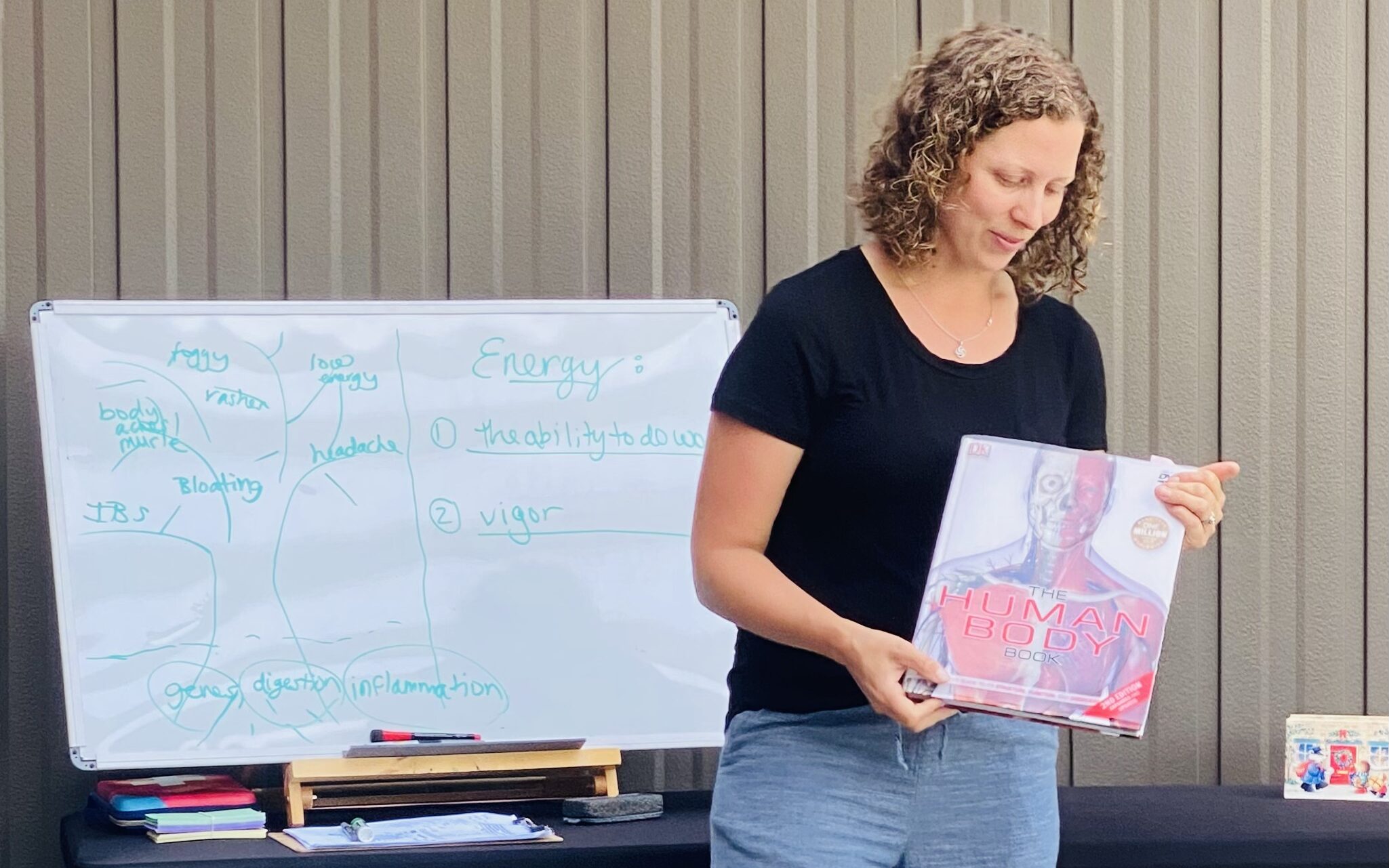Of all the complaints clients come to me for, low energy is near the top of the list. It’s usually not the number one issue (GI complaints take the cake) but when asked what they would change “if you could wave a magic wand and feel differently”, having more energy definitely is in the top three.
As an Ithaca Nutritionist specializing in functional and integrative nutrition, I ask why. WHY do so many people have low energy? And what can we do about it? This is the first of a three part series on energy.
What is energy?
There are two main definitions of energy.
Energy (n.):
a. The ability to do work
b. Vigor or liveliness
Encarta English Dictionary
When I think about what it means to have energy, I think about doing the things I want to do in life. I want to hike up mountains with my kids, do great work and help a lot of people, cook healthy and delicious meals, hang out with friends and family, AND get the laundry put away by the end of the day.
What would YOU do with more energy?
Low energy is a symptom, not a cause
In functional nutrition and functional medicine, we think about “root cause resolution”. We want to find the actual causes (and yes, there’s usually more than one) of what’s underlying the issues. Low energy is a symptom, not a root cause.
If you think about a big maple tree, what you see are the branches, the leaves, and the trunk. The roots of the tree are underground, they are in the soil.

If we use this analogy and apply it to your body, the branches, leaves, and trunk are the signs and symptoms. They are what you see and what you notice when you’re not feeling your best. Bloating, gas, headaches, skin rashes, joint pain, autoimmune disease, constipation. . . and low energy. These are signs and symptoms.
The roots are underground. You can’t see them when you look at the tree. The nutrients and water for the tree come from the soil or the terrain surrounding the roots. In your body, the three main roots are digestion, genetics, and inflammation. Diet and lifestyle are the terrain that surrounds the roots. If you change your diet and/or lifestyle to modify the terrain, you directly impact the roots (digestion, genetics, and inflammation) and this in turn affects what you see (signs and symptoms).

Where does energy come from?
Energy is created in your body from food. A calorie is a unit of energy. If you remember back to high school biology, the process starts with digestion. Simply- you eat food, it goes in your mouth where you chew and swallow, it travels down your esophagus to your stomach where it’s churned and mixed with digestive enzymes and stomach acid. From your stomach it moves into your small intestine where the bulk of nutrients (vitamins, minerals, and macronutrients including protein, carbs, and fat) are absorbed. From there, what’s left travels to your large intestine where more water is absorbed and the waste is eliminated. There is a lot to digestion and a lot can go awry in this process (but that’s the topic of other posts and a lot of the work I do with clients).
Glucose gets absorbed from your small intestine and enters your blood. The glucose from your blood and from liver/muscle glycogen combined with the breakdown products of fat, enter the Kreb’s cycle to produce ATP in the cell’s mitochondria. ATP is your body’s energy source at the cellular level.
In essence, food becomes energy. There are also a number of vitamins and minerals involved in the process of producing energy. For example, you need B vitamins, iron, selenium, and lipoic acid for the Kreb’s cycle to produce ATP.
We could make the connection that these vitamins and minerals are needed to produce energy and if you want more energy, you could jump straight to supplements. Want more energy? Take B-complex vitamins, iron, selenium, and lipoic acid. This is one approach and I’m a big fan of supplements in the right circumstances but it’s not the functional nutrition approach that I use. I always start with food first. These vitamins and minerals are all found in food AND there is more to the energy puzzle than vitamins and minerals. In my next post, I’ll talk about what’s draining your energy and then how to boost your energy starting with the foundations first and working your way up to addressing the signs and symptoms one step at a time.
Take action. What’s ONE thing you can do TODAY to increase your energy? Are you eating at least 2 1/2 to 3 cups of vegetables each day? Are you drinking at least eight 8 oz glasses of water each day? Are you sleeping 7+ hours each night? Are you having a bowel movement daily? If not, pick something and start doing it. Tack it onto something you’re already doing to make it easier.


I always learn so much when I read Erin’s articles. She’s so knowledgeable and explains things so well.
Thanks for the kind words Kathy! I’m glad you find these posts helpful. =)
Thank you, I needed this reminder. I am enjoying your posts and getting back to visiting your website. 🙂
Thanks for the comment Sue! Glad to hear you’re finding value in my posts. All the best to you, Erin